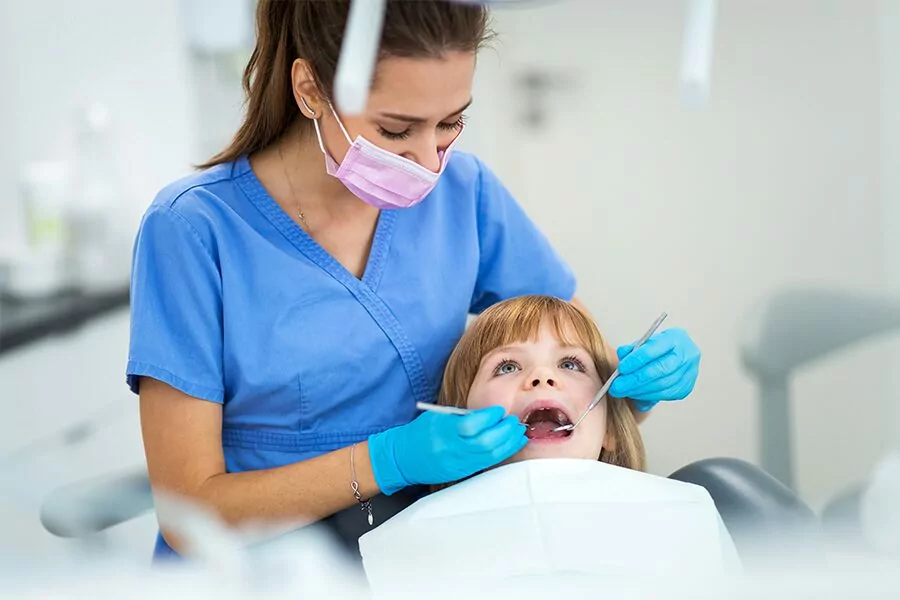An Overview to Usual Oral Problems That Require a Dental practitioner's Care
Comprehending the range of dental conditions that require expert care is paramount for preserving optimal oral wellness. Toothaches, for example, can be symptomatic of serious problems such as tooth cavities, cracked teeth, or abscesses, each requiring specific treatments like fillings or root canals. Periodontal illness, from the onset of gingivitis to much more extreme periodontitis, underscores the importance of normal dental exams and cleansings. Furthermore, influenced wisdom teeth and jaw disorders can present considerable pain and complications. Making certain timely sees to the dental professional can alleviate these issues effectively, however exactly what are the indications and therapies entailed?
Toothaches
Toothaches are a typical oral problem that can vary from light discomfort to extreme discomfort, commonly showing an underlying issue that needs specialist interest. This discomfort can originate from a selection of resources, consisting of oral cavities, split or fractured teeth, and dental abscesses. Each of these problems presents significant threats if left untreated, potentially causing extra extreme problems.
Dental dental caries, likewise recognized as decays, are triggered by the build-up of plaque that deteriorates tooth enamel, resulting in holes or pits in the influenced teeth (dentists eugene). Cracked or fractured teeth, on the other hand, might arise from trauma, grinding, or biting into tough things. These structural problems can expose the sensitive inner layers of the tooth, creating pain and increasing the risk of infection. Abscesses are excruciating infections at the origin of a tooth or in between a tooth and the gum, generally arising from severe degeneration or unattended cavities.
Effective treatment of toothaches involves addressing the origin. This may include dental fillings for dental caries, crowns for fractured teeth, or origin canals and anti-biotics for abscesses. Early treatment by a dental expert can stop additional deterioration and reduce discomfort, ensuring optimal oral wellness.
Gum Tissue Illness
Periodontal condition, a prevalent yet frequently ignored oral condition, shows up with inflammation and infection of the gum tissues and supporting tissues. This problem largely takes place in two phases: gingivitis and periodontitis. Gingivitis, the milder type, presents with symptoms such as red, swollen periodontals that might bleed conveniently throughout brushing or flossing. If left without treatment, gingivitis can proceed to periodontitis, a more serious kind characterized by the devastation of the supporting bone and connective cells, inevitably resulting in tooth loss.
The main reason of gum tissue condition is bacterial plaque, a sticky, anemic film that regularly bases on teeth. Poor dental hygiene, cigarette smoking, genetic predisposition, and particular clinical conditions, such as diabetes mellitus, can aggravate the threat of creating gum tissue condition. Normal dental examinations are important for very early discovery and monitoring of this condition.
Treatment for gum tissue illness varies from professional dental cleansing and scaling to even more innovative treatments like origin planing and gum surgical treatment, relying on the seriousness. Maintaining excellent dental hygiene techniques, including brushing two times daily, flossing, and making use of a disinfectant mouthwash, can dramatically reduce the threat of periodontal condition and promote healthier gums.
Tooth Cavities
Tooth cavities, also referred to as tooth decays, are an usual oral condition defined by the devastation of tooth enamel because of this post acid-producing bacteria in the mouth. These microorganisms prosper on sugars and starches from food and drinks, creating acids that gradually wear down the enamel, bring about tooth cavity development.
Early-stage tooth cavities may not show signs, yet as they proceed, they can cause tooth pain, level of sensitivity to warm or cold, noticeable holes or pits in the teeth, and staining. If left unattended, dental caries can permeate deeper layers of the tooth, possibly resulting in severe discomfort, infection, and also tooth loss.
Protecting against tooth cavities includes a mix of good dental health methods and nutritional routines. Regular cleaning with fluoride tooth paste, flossing, and routine oral examinations are important. Dental professionals may additionally suggest added preventive actions, such as fluoride therapies and oral sealants, to protect teeth from degeneration.
Minor tooth cavities can be addressed with dental fillings, which restore the tooth's framework. More innovative cases may need crowns or even origin canal treatment if the decay has actually reached the tooth's pulp.

Impacted Wisdom Teeth
Affected wisdom teeth are a widespread oral problem that takes place when the 3rd molars, typically described as wisdom teeth, fail to completely emerge or line up properly within the mouth. This condition often results from insufficient space in the jaw or an irregular development angle of the teeth. Affected wisdom teeth can cause a variety of problems, including infection, pain, and damages to nearby teeth.
When wisdom teeth end up being affected, they are usually partially appeared or stay completely beneath the gum tissue line. This partial Your Domain Name eruption can create a pathway for germs to go into the periodontals, causing infections that manifest as swelling, discomfort, and also fever. Additionally, influenced wisdom teeth can exert stress on neighboring teeth, possibly causing crowding or changing.
An extensive oral examination, generally entailing X-rays, is crucial for detecting affected knowledge teeth. Regular oral examinations are a good idea to check the condition and preserve dental health and wellness.
Jaw Disorders
Jaw problems, jointly recognized as temporomandibular joint (TMJ) disorders, incorporate a variety of problems that influence the jaw joint and surrounding muscular tissues. These disorders can materialize via signs and symptoms such as discomfort or tenderness in the jaw, problem chewing, a standing out or clicking sound when closing the mouth or opening, and also persistent migraines. TMJ disorders can occur from different variables, consisting of joint inflammation, jaw injury, or habitual habits like teeth grinding or jaw clenching.
Diagnosis of TMJ disorders commonly includes a company website detailed examination by a dental professional, including a physical exam of the jaw, oral X-rays, and sometimes advanced imaging methods like MRI or CT checks to examine the joint's condition. Non-invasive techniques such as physical treatment, oral splints, and drugs intended at decreasing swelling and discomfort are often first-line therapies.
Very early intervention by an oral professional is vital to stop the development of TMJ problems and to preserve general oral health and wellness. People experiencing relentless jaw pain or dysfunction should look for punctual analysis and treatment.
Conclusion
Preserving dental health demands timely expert treatment to attend to common dental conditions. Toothaches typically suggest underlying concerns such as tooth cavities, split teeth, or abscesses, calling for timely intervention. Periodontal disease, from gingivitis to periodontitis, needs normal oral exams and cleanings to stop progression. Affected wisdom teeth and jaw conditions additionally require professional interest to alleviate discomfort and avoid more issues. Routine dental visits are crucial for identifying and dealing with these problems, ensuring general oral health and health.
Dental tooth cavities, likewise understood as decays, are triggered by the build-up of plaque that wears down tooth enamel, leading to openings or pits in the influenced teeth. Abscesses are painful infections at the root of a tooth or between the periodontal and a tooth, commonly resulting from serious degeneration or without treatment tooth cavities.

In addition, affected wisdom teeth can apply pressure on bordering teeth, possibly causing crowding or changing.